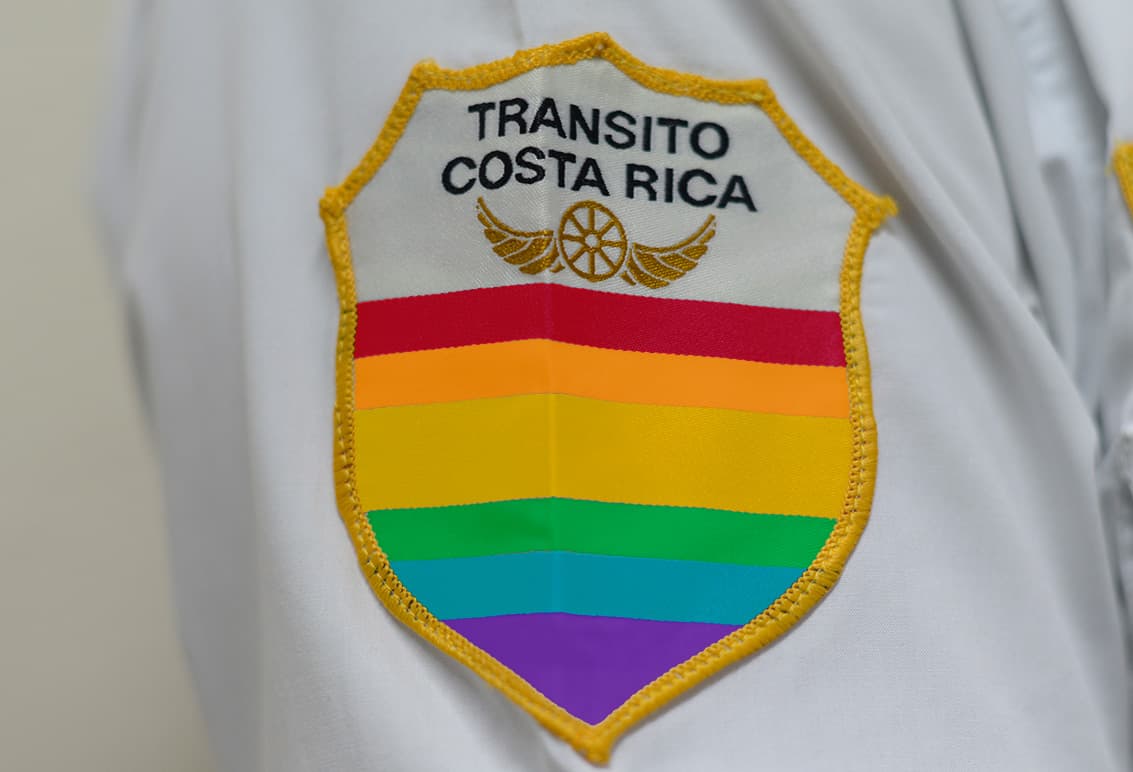Costa Rica’s National Police academy and the Center for Research and Promotion of Human Rights in Central America, CIPAC, launched a national campaign Thursday to raise awareness about police abuse of gay, lesbian, bisexual and transgender people, and to improve diversity training for new police recruits.
Campaign ads will be posted on social media and aired on radio. CIPAC, which received funding from the Canadian government, has already begun training officers on LGBT human rights issues.
The campaign was triggered, in part, by an October 2014 survey done by CIPAC, a non-profit organization dedicated to LGBT advocacy in Central America, that found 74 percent of National Police officers surveyed had received no training or information about LGBT issues.
The 446-person survey of officers from across Costa Rica found that 62 percent believed that same-sex attraction was an illness; 25 percent believed that LGBT people had fewer rights under the law than heterosexuals; 43 percent agreed that gays and lesbians should not be able to run for public office; and 16 percent said it was OK to beat LGBT people.
In the following video (in Spanish) released as part of the awareness campaign, Vice Minister of Governance Carmen Muñoz encourages the public to report police abuse of human rights, especially when related to sexual orientation or gender.
Patricia Rubinstein, police instructor and coordinator for the academy’s ethics training, said that the National Police had updated the section in its manual on human rights to address issues specific to LGBT people, along with human trafficking victims, HIV-positive individuals and migrants. A statement from CIPAC said that the organization had thus far provided training to 600 officers and had distributed 20,000 pamphlets on human rights and LGBT issues.
The recent CIPAC survey found that officers who identified as evangelical were more likely to have negative feelings toward LGBT people.
“Costa Rica is a country with religious freedom,” police instructor Rubinstein said. “But religious beliefs are not an excuse to treat people without respect,” she said.
Not all officers thought the survey was accurate. Ronald Pérez, an openly gay police instructor with 11 years as a beat cop, told The Tico Times he thought the survey’s sample size was too small to accurately reflect the views of the 14,000-person force. (Madrigal defended the survey’s methodology.)
Pérez said he was especially dubious of the 16 percent figure supporting beating LGBT people. He said that in his experience LGBT discrimination by the police was less severe than the survey suggested.
Still, Pérez acknowledged the limits of the academy’s ability to change a cadet’s deeply-rooted beliefs.
“At the academy we train new police officers but we can’t change their beliefs,” Pérez said. “We do our work but when they’re out on the street it’s up to them whether or not they use what we’re teaching them. That’s the biggest challenge.”
Rubinstein was less forgiving.
“If they can’t treat people the same, then they shouldn’t be police,” she concluded.






